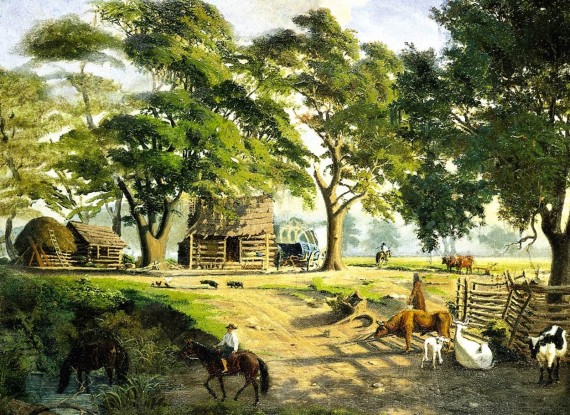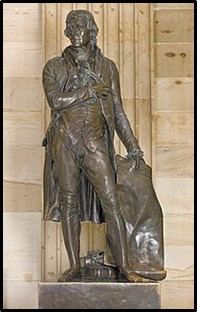I have made a discovery. There does, indeed, exist a place where nobody wants to leave. It is possible to breathe there without worrying about what you are inhaling. This place is not infested with joggers or 300-pound shoulder-strap radios, and when you’re driving along and meet another car or truck on the road, that other driver is very likely to wave at you. You, of course, wave back. This is called courtesy.
As I write this in my office, located in the “Uptown” area of a major Southern city, I am contemplating my upcoming marriage and subsequent move to the Cloud’s Creek area of Saluda County, South Carolina, an entirely rural county populated by chickens, pine trees and a rugged breed of country folk. Many of my friends consider this marriage, at age 32, a sudden and surprising move, especially when they find out that I’ll be an instant father to three children, ages 11, 7 and 5.
“You are moving out there?” one person asked in shock. “Why don’t you move the children to town. They’ll have so much more to do.” Perhaps. But how much more, I ask, will they have to do that is worth doing?
Lately, I’ve been re-reading the agrarian writers who made their mark fifty years ago. Nobody I’ve met in Cloud’s Creek has ever heard of, much less read, the agrarian philosophers of Vanderbilt in I’ll Take My Stand. They don’t need to, because as agrarian values are explained, these people invariably respond, “Hell, I don’t see what the big fuss is all about. These are things we’ve been doing or thinking or believing for years now.”
These people don’t work the land as such, but many of them still have gardens. They might live in double-wide mobile homes or sturdy brick houses, but theirs is an organic life which the bean-sprout brigades and the macrobiotic gourmets of Metropolis would have trouble fathoming.
And while my stepdaughter-to-be has enough stereo equipment to qualify her to become a minor NBC affiliate, her favorite singer is Conway Twitty. She has no use for that KISS album somebody gave her for Christmas last year. Bless her heart. Parents of 11-year-olds everywhere, doesn’t that sound refreshing?
Oh, but I’ve got a lot to learn, too, over and above the obvious aspects of being a parent and husband. For instance, I’ve been told that I’ll be expected to work in the garden. Fine, I said, it beats mowing the grass. By late summer, I may be eating those words, but I’ll also be eating homegrown tomatoes and squash.
There are certain logistical problems to overcome as well. We are, after all, 15 miles from any grouping of dwellings and stores loosely considered a town. A 30-minute ride just to shop at a Bi-Lo or Food Lion is liable to become a major excursion for me. The Saluda County Library, which I’ve been assured exists, will be a 20-minute drive to Mecca.
Remember too, that as one who will have lately come to the area fresh from 10 years in the fleshpots of a big city, I’ll be morally suspect. I have partaken of French wines, escargot, coquilles St. Jacques, chateaubriand, and, of course, quiche. I have been publically seen in museums and at symphony orchestra concerts and even at the ballet. Why, once I was at a political rally for a politician with Kennedyesque aspirations and shook hands with President Jimmy Carter. All these things are to be buried in my soul and divulged to no one.
When I move out to Saluda County and anybody asks, as inevitably people do ask, where I’m from, I’ll tell them I’m from Hartsville, South Carolina. That way they may be assured that I like fatback in my butter beans, water in my bourbon, ketchup on my hamburger and that I know the difference between a dobro and a thirty-aught-six.
These things are part of what non-Southerners occasionally and reverentially refer to as our “sense of place,” because we have ours, and they’ve lost theirs. (Journalist Marshall Frady, referring once to W.J. Cash’s The Mind of the South, asked who would be sufficiently vain to essay a similar project on The Mind of Illinois or The Mind of the West Coast).
Which brings me to something I want to make abundantly clear to the three children I’m about to try to help bring up: anybody who tries to make these three children ashamed of what they are or where they come from is cruisin’ for a bruisin’.
Sure, there are wonderful things outside the borders of Saluda County. The Parthenon, the Vatican, the Louvre. Johann Sebastian Bach praised the Lord with magnificent joyful noises and Ludwig van Beethoven raged at Him. A Serbian nationalist shot an Austrian archduke, and Western Civilization came to an end four years later. This kind of thing happens today. Somewhere in New York or Washington, D.C., there may even be somebody doing something important and lasting this very moment. We just haven’t been told, that’s all.
Yet these three white non-Hispanic meat-eating protestant children who’ve actually been known to turn off a TV set to listen to a good story are, in subtle ways, finding themselves demeaned because of their heritage. Television tells them that the sins of the fathers are the sins of the children, that each of them is to be ashamed that white Southerners engaged in the practice of buying, selling and owning other human beings. For this, they are told, they are forever damned, condemned to a world of post-Neanderthal physical types whose whole intellectual diversion is spending an afternoon reading numbers on a football jersey. They are told that there is no life outside New York or Los Angeles, and if there is life anywhere else, it all takes place on some ship aimlessly shuttling between LA and Acapulco, Mexico, or on some mysterious archipelago where Mr. Roarke presides over fantasies.
Even the schools are forgetting to tell them that George Washington and Thomas Jefferson were Southerners and that the real General Lee was not named after a red Dodge Charger. They’ve barely heard of Stonewall Jackson or the Swamp Fox, and to them, George Washington Carver had something to do with peanuts. John C. Calhoun, Huey Long, Flannery O’Connor, Bill Monroe, Nathan Bedford Forrest—will the children ever encounter those names, and know who they are?
You can see that some of the messier presentations of the 1980’s South have slipped into God’s Country. Look what happened to country music when the New York-Los Angeles crowd discovered there was money in it. Now some of the “country” radio stations are beginning to program Bob Seger cuts, for crying out loud. And I don’t know what’s going to happen when the little country store up the road installs the inevitable Pac-Man. With all those kids running in from the countryside to dump quarters into a machine that sounds like a Wurlitzer organ with indigestion, it may mean the end of that fine old institution, the Southern beer joint. These insidious outside forces got to our food a long time ago, and we should have realized what was going on when somebody started putting sugar in the cornbread. Now Ronald McDonald is all over the place— his golden arches constitute the tallest structure in one town that I know, and Tennessee Ernie Ford is on the TV selling Martha White pizza crust mix. Oh, my Great-Aunt Effie’s aching back.
The whole attitude was neatly summed up a few years ago by the multi-talented Dolly Parton, in explaining her wardrobe and accessories. She said, “We was all raised poor, and we didn’t have much ‘cept our music. Then when we started gettin’ attention and makin’ a little money, we all jus’ went overboard.”
Jimmy Carter had at least one good idea, when he said something about preserving the ethnic purity of our neighborhoods. You don’t despoil the land you’re on. Where you are—who you are—is special. But what followed Carter’s comment were all kinds of knee-jerk cracks about racist attitudes and Grand Dragons in the White House.
And all that leaves me with is one final question, the big one: Will my three prospective stepchildren and the other Southern children of their generation, know who they are? Where they come from? If indeed children are our greatest natural resource, will they know that there is life after Pac-Man?
I know of three children for whom the answers to these questions will be in the affirmative response mode, as they say in Washington. One of them, the 11-year-old, has already taken her stand. She rose up in social studies class one day a few weeks ago and informed her teacher that the business of 1861-1865 was not the Civil War, it was the War of Northern Aggression, and why hadn’t the teacher told them that?
A small start, to be sure, but a start nonetheless.
This essay was originally published in the Summer 1983 issue of Southern Partisan magazine.







